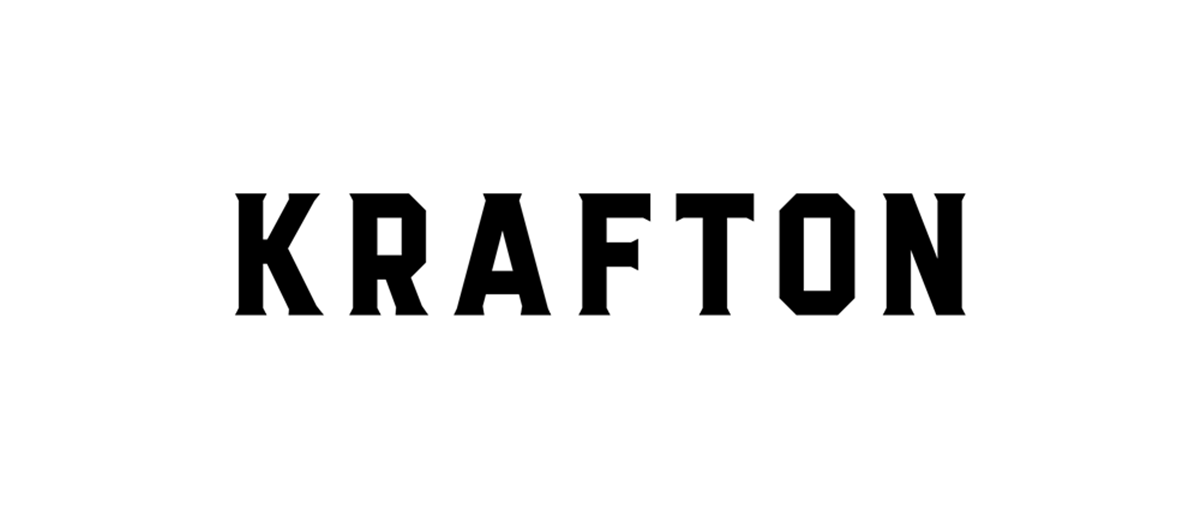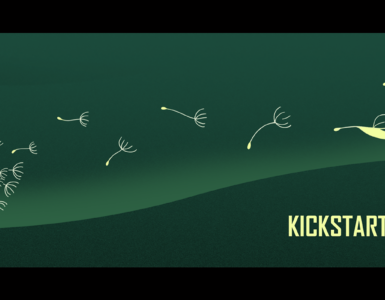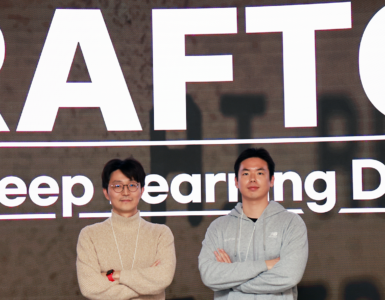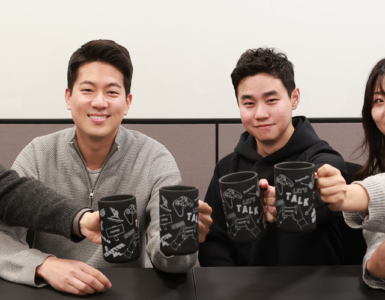Interview with KRAFTON’s Pathfinders Team
KRAFTON operates the Producers Pathfinders Program, a course dedicated to training game producers. This specialized program is designed to enhance the capacities required of game producers. We met with KRAFTON producer and team leader Hwang Seon-il, who completed the program as a member of the second class, to gain the insider scoop as to how he became a producer. Seon-il compares the role of a game producer to that of the captain of a ship during the age of sail. He spoke to us about the experience needed to become a game producer and the unique aspects of KRAFTON’s producer training program.
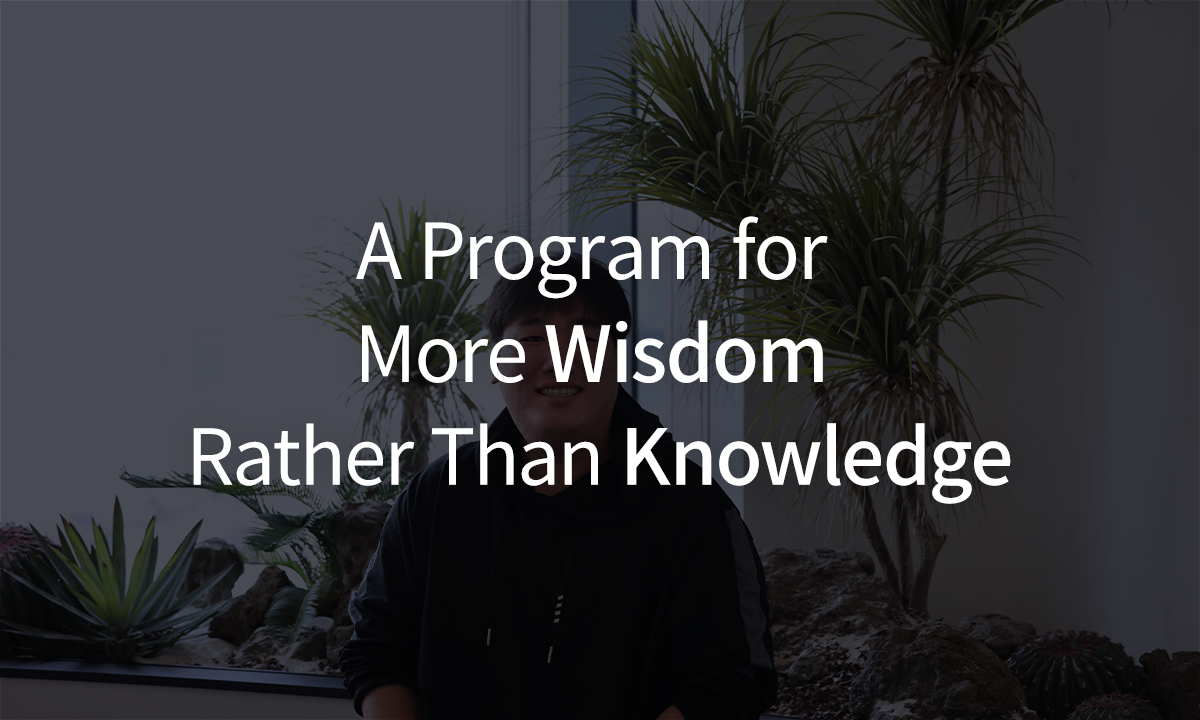
Hi there. Could you introduce yourself to our blog readers?
Hello, I’m Hwang Seon-il. I’ve been a member of the Pathfinders team since February of this year, and I also lead a team that produces a card-based strategy game called Commander TF.
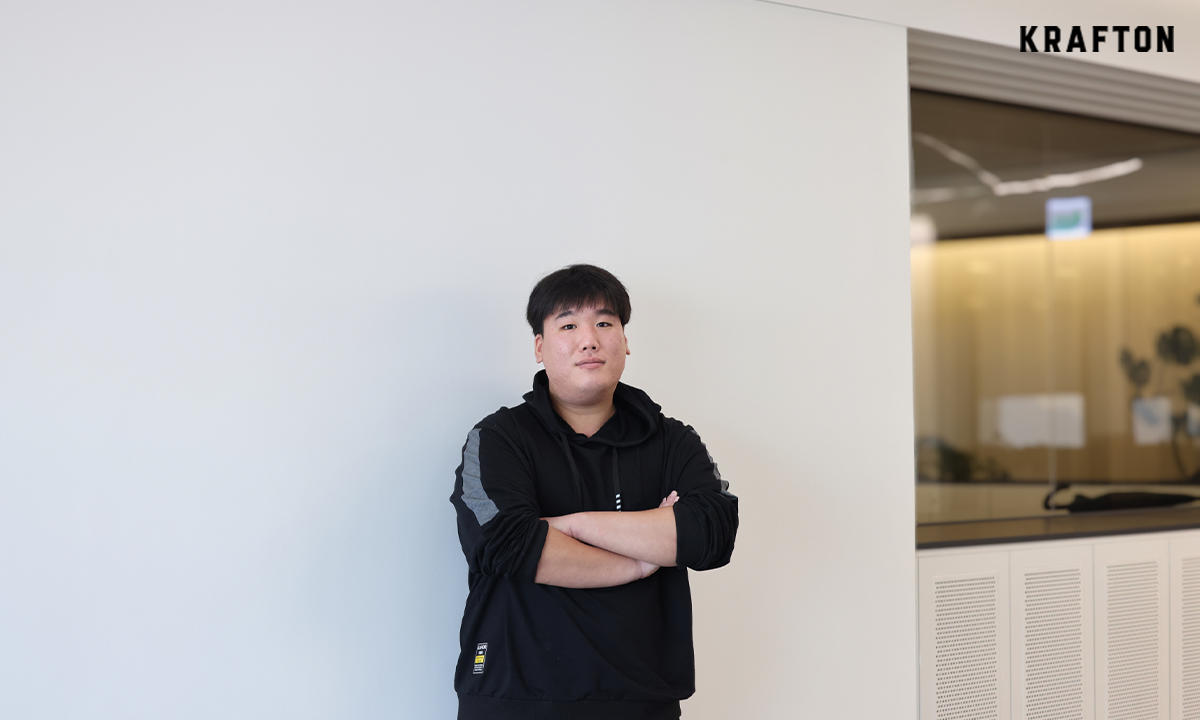
Wow, so you’re a member of two teams at once? What kind of work do you do for them?
As the producer for Commander TF, I oversee production and develop the game in line with our vision. In addition, I help to create an in-depth plan for what kind of game we’re going to make and how long that will take, as well as to follow that plan in the development process.
For the Pathfinders team, I facilitate the sharing of the experience we gain from this production process and give advice when there are concerns or worries, which helps to build our community.
How did you enter the video game industry?
I was originally studying electronic engineering at college. After my first year, I went to do my military service, where I thought a lot about my career plans. I wanted to find a line of work that I could enjoy even after doing it for decades into the future and decided that making video games is the best fit for me.
That’s why I switched majors to computer engineering and took part in any gaming-related activity I could find, both inside and outside the campus. For example, I was a member of a video game production club and a board game production club and was the rules manager for a board game café. In the video game production club, I mainly led studies related to video game planning, while I gained much experience in making board games with the board game production club. I also took part in several open contests and “game jams.”
I broadened my thinking through this process. I was never really taught how a game should be made, so I was curious and eager to see whether my skills at the time could be effective in the field. Then I learned about the curriculum taught by the Game Institute under KOCCA through an acquaintance who took part in the first class of the Game Institute and signed up for the second class because I felt that it would be a good fit for me. At the Game Institute, I learned a lot through its three-month game production projects.
It’s interesting that you worked with board games. How did you get into that?
Back then, I wanted to try anything related to video games, no matter what it was. That’s what led me to work part-time at a board game café. I worked there for about three and a half years until I found a full-time job. I felt that learning about the systems and rules of board games would help me to make games. It started as a part-time job, but then I became a rules manager for the café, who teaches customers how to play challenging games and watch over the games. I think I still remember the rules for hundreds of games.
And do you find that your knowledge of board games benefits game development?
I think board games have become a part of my DNA, for better or worse. There are pros and cons, really. One advantage of having played board games for a long time is that it’s easy for me to make up rules for a game and predict how it might pan out. On the other hand, one potential issue is that the game might feel a little rigid since the player sees things from a different perspective than the developer. It’s even more complicated because there is no correct answer.
You said you participated in several game jams or events related to game development. Do you have any memorable stories from game jams or open contests?
I took part in about 15 game jams when I was a student. To give a brief summary of game jams, they’re events in which people who are interested in game development take part to form teams with developers on the spot and work day and night for a set period of anywhere from three days to two weeks to create a simple prototype video game.
I didn’t even finish my project at my first game jam, so my goal was to complete one for the next time. Then, when I finished a game, winning a prize was my next goal. As I kept participating in these events, I eventually finished in third, second, and first places. I think I’ve won about ten prizes in total.
My most memorable story is when I curated five of the best games I made for game jams and submitted them for Smilegate STOVE. To pick another example, I was once invited to Busan Indie Connect Festival to showcase a game with which I’d won second place at a game jam. Of course, I think it helped that I made so many different games.
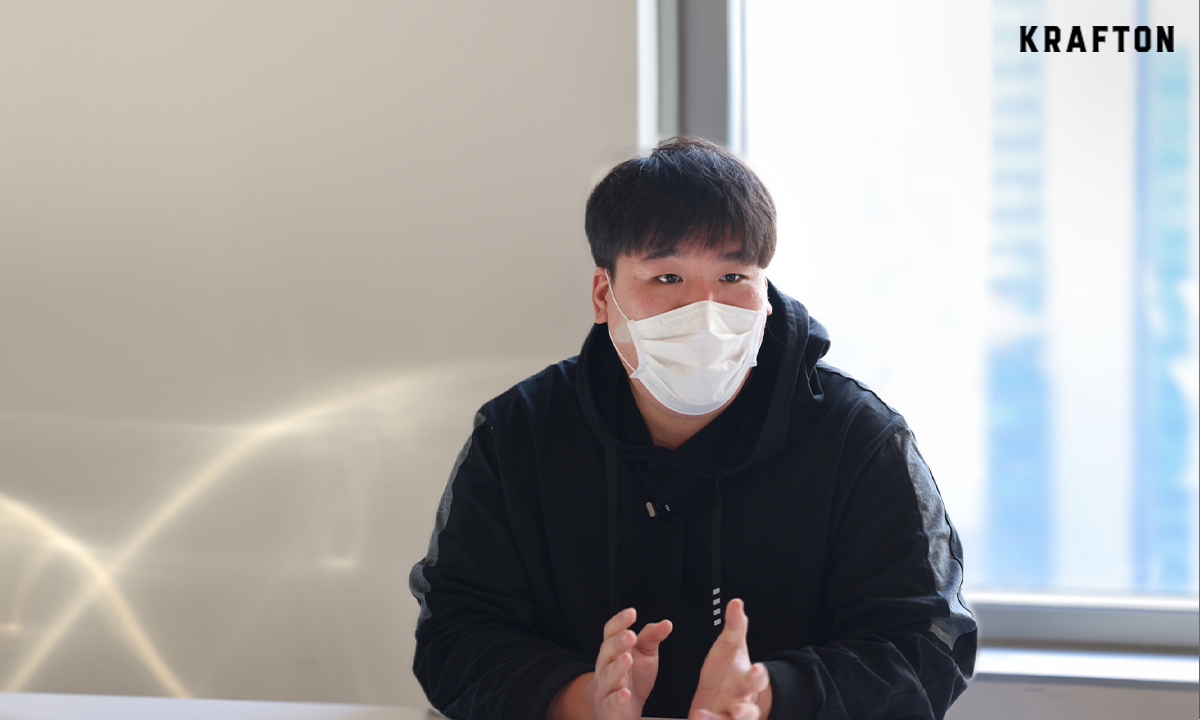
Out of all the different video game companies, why did you choose KRAFTON?
KRAFTON was the only company that wanted to train its own producers. Even when I first decided to enter the video game industry and worked at my previous company as a live event planner, I always wanted to become a producer. Sadly, becoming a producer requires at least eight or ten years of experience, whether it’s as a planner, programmer, or artist. I found it refreshing that KRAFTON was going in a completely different direction. I knew that I’d regret it for the rest of my life if I didn’t seize this opportunity. That’s why I submitted my résumé for the second class recruitment call for Pathfinders.
I’m curious to know why you chose to be a producer in particular.
I chose to become a producer to oversee the production process. In fact, I didn’t exactly know what a producer does until I joined KRAFTON. At the game jams I took part in, I was usually the planner or the programmer. Later, I gained a lot of experience as a general manager. Ever since I joined KRAFTON and started working as a producer, I’m starting to realize that all of these experiences contribute towards producing a game.

Can you tell us what kind of games you like to play in your free time?
My favorite game to play is “Sid Meier’s Civilization.” That’s what I play the most in my free time. I also love and enjoy playing “Slay the Spire.” Rather than games that require a lot of keyboard input or control, I prefer games that encourage me to think, even if the controls are simple.
You became a producer through the last Producer Pathfinders Program. What was the biggest lesson that you took away from it?
To be honest, the biggest lesson was that the chances of my ideas or the rules of a game “succeeding” are not high. It’s possible that someone else has already thought of whatever I come up with, or that it already exists in the market. When I analyzed successful cases and saw that success requires a staggering number of stars to align, whether it’s luck or other factors, I learned that it’s not easy to make a successful game.
This might sound a little pessimistic to some, but I believe that it’s necessary for a producer to look at things from this perspective. There are always going to be team members that think optimistically, but my job as the production manager is to think from the other side and handle issues that others might not see from an optimistic standpoint. I think it’s the producer’s job to anticipate negative or pessimistic issues from the ground up, so that the optimists can work on their ideas or designs with confidence.
In short, I learned firsthand that it’s more complicated than it looks to find out what players want and what’s currently lacking, as well as that it’s essential to look at several clues from an overall perspective.
Another thing, I also learned that there’s a difficulty gap between my previous projects and working in the field. I didn’t face many problems recruiting people for my projects at game jams and the Game Institute since people naturally flocked to games that they found interesting.
But when I came to KRAFTON, finding teammates was a different story altogether. It was much harder to persuade people to work with me when they had no reason to make video games with me. There was a wider range of issues that were broader in scope. Bringing the company management on board was another new experience that I found very difficult. I mean, I often had to talk people round or oversee production back in my extracurricular activities, but I feel that persuading people at KRAFTON was the most difficult and raw experience for me.

I’d like to know if there’s anything about KRAFTON’s Producer Pathfinders Program that you think is unique or that you’re proud of.
I think it’s unique in the sense that it’s the only producer training program in the industry and that it focuses on building wisdom rather than knowledge. I feel that I used the time to come to certain realizations and change the way I think, as opposed to simply learning specific knowledge. The hard training helped me to grow and gain wisdom.
As a former participant of KRAFTON’s Producer Pathfinders Program, what kind of competencies, skills, and mindset do you think that prospective participants should have, now that the program is set to recruit participants for its third class?
In terms of skills, I think it’s essential to have at least the basic skills in terms of game production. What I mean by that is, at least the ability to make a prototype build using Unity or Unreal Engine. In addition, it would be helpful if they knew how to define properties in the system in terms of game planning, as well as what the core loop is and how the mechanics work. In terms of art, they’ll need to be able to distinguish between colors, know how to look at composition, and find art that suits the system.
As for mindset, I think the most important thing is not to fear failure. In the game development process, there are times when the values we held before might falter or even break. I feel that it’s necessary to have a resilient mindset to stand back up and carry on in those moments rather than give in to despair.
What are some of your personal goals within the Pathfinders team or as a producer?
My goal within the Pathfinders team is to contribute towards building a community where everyone can share meaningful opinions and insights. I think that’s how we can maximize our strengths. Our most significant advantage is that we can share different perspectives and ideas.
To use a metaphor, let’s say that we have one member in the Arctic region, one in Antarctica, and another in the desert. If we ask them all what their greatest challenge is, even though they might all have different ways of surviving, it’s likely that there will be some common values. In the desert, it’s important to hydrate, whereas in the Arctic or Antarctic region, it’s important to guard against the cold. I think that it’s the goal of a community to share ideas such as the mindset we should have to carry on in the face of a threat, based on these values. That’s why our goal is to share our common values and perspectives as much as we can within this community in spite of our different circumstances.
On a personal level, my goal is to complete the card-based strategy game that we’re developing at Commander TF. I don’t know if it’ll be successful, but I at least hope that it doesn’t become buried without seeing its full potential. Even if it ends up as a failure, I want it to be released on the market and see what the response is before we accept failure. Furthermore, I want to become somebody who isn’t really fazed by the thought of failure. I believe that’s how we can take on endless challenges and find success at the end of the journey.

Lastly, how would you describe the role of a video game producer?
I think it’s similar to the captain of a ship in the age of sail. We’re sailing in uncharted waters these days, but the desire for people to gain wealth remains the same, so we gather sailors, ask wealthy nobles for patronage in return for imports of pepper, form a fleet to boldly push ahead with a plan, and either sink or swim in that process. For example, I might need a navigator, but it’s also important for me, as the captain, to have some knowledge of navigating myself. In many ways, I’m just like a captain in the age of sail. (Laughs)
